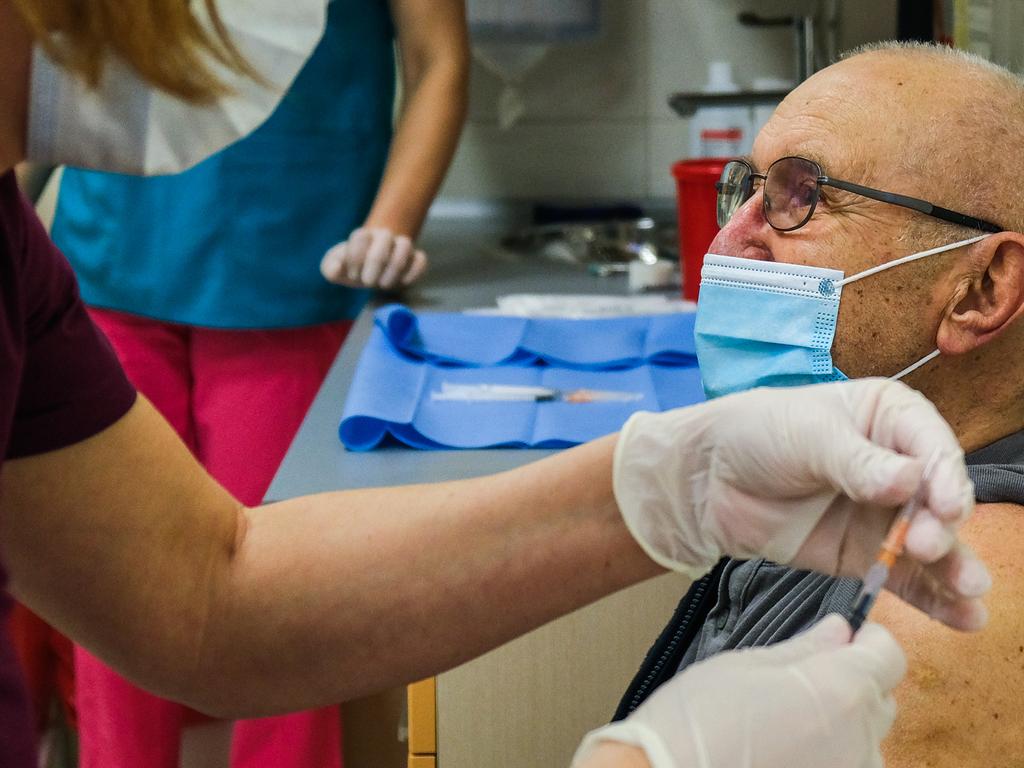To be clear, there are no issues whatsoever of safety. But the efficacy issue boils down to a simple equation.
According to German data, in the AstraZeneca phase III trial conducted last year in the UK, Brazil and South Africa, only 341 people aged over 65 were given doses of the AZD1222 vaccine. That represented only 6.5 per cent of participants. There were 319 people in the control group.
By the end of the trial, there had been one COVID-19 positive case recorded in the vaccine group and one positive case in the control group. Therefore, no conclusions could be reached on the efficacy of the vaccine in the elderly.
When I questioned Australia’s acting chief medical officer Michael Kidd on Tuesday about whether the TGA was concerned that the AstraZeneca vaccine had not been tested widely enough on the elderly, he said the regulator had access to more data than was published in The Lancet on December 8 that reported AstraZeneca’s phase III interim clinical trial results. These are the same results that the German vaccine committee STIKO is relying on for its analysis.
The European regulator, too, which is due to make a decision on the AstraZeneca vaccine imminently, would also have access to a wider variety of data that is being constantly supplied by AstraZeneca as part of the vaccine approvals process. There is a much larger clinical trial currently being conducted in the United States, involving 40,000 people and a greater representation of elderly. There is also real-world data coming in particular from the United Kingdom, which has already given the AstraZeneca vaccine to millions of people, including the elderly.
Indications are that the European Medicines Agency is likely to approve the AstraZeneca vaccine for use in the elderly despite the German vaccine committee’s advice. If the TGA is satisfied as to efficacy from the unpublished data it’s being supplied, it will approve the AstraZeneca vaccine’s use in all age groups, too.
The TGA will need to communicate very effectively to reassure Australians that it’s satisfied the vaccine is efficacious in the elderly, given the lack of statistical certainty in the so-far published data. As the editor of the Medical Journal of Australia, Nick Talley, remarked when I interviewed him this week, it would be a far preferable situation if the data being considered by regulators was published promptly for all the world to see.
“We really just don’t know from that published data if the vaccine is as good in older people as it is across the board,” Professor Talley said. “I think we urgently need to see the full data that AstraZeneca has on the vaccine that isn’t published.”
The need is all the more urgent given the German developments.





The warning from the German health ministry’s vaccine committee that the AstraZeneca jab should not be given to those aged over 65 is a recommendation based purely on mathematics.